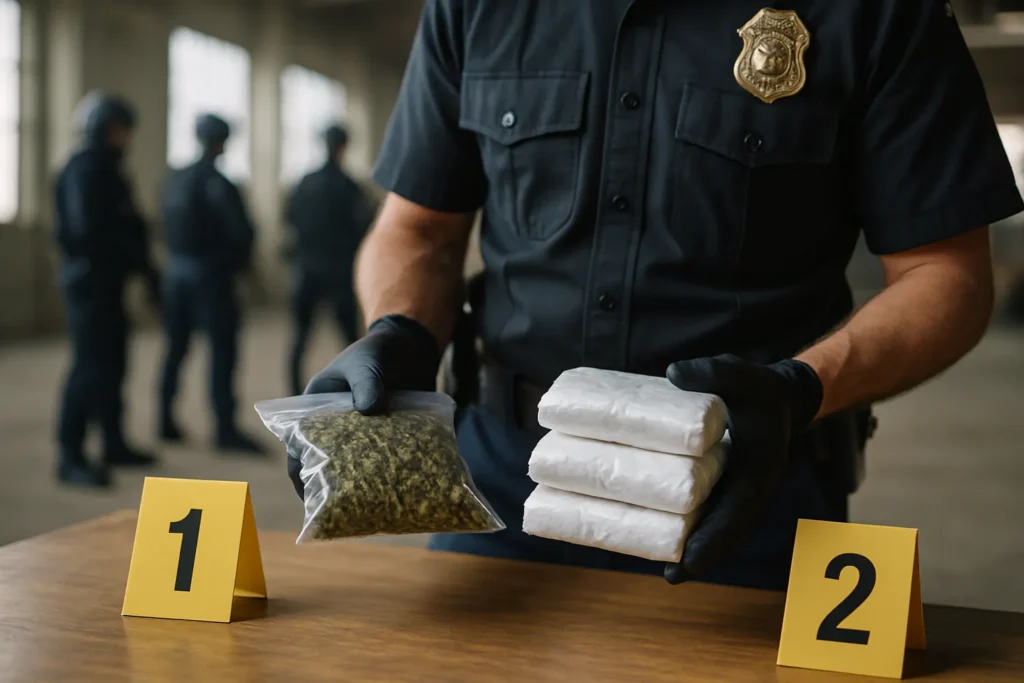The Sinaloa Cartel in the Crosshairs of U.S. Justice
In a move as unprecedented as it is sobering, U.S. federal prosecutors have indicted Pedro Inzunza Noriega and his son Pedro Inzunza Coronel—alleged ringleaders of the Beltrán Leyva Organization (BLO), a notoriously violent faction of the Sinaloa cartel—on charges of narco-terrorism and material support for terrorism. This marks the first time in American legal history that Sinaloa cartel figures have faced terrorism indictments instead of the typical slate of drug trafficking or racketeering charges.
The timing is hardly coincidental. In 2020, the Trump administration designated the Sinaloa and other transnational crime organizations as “foreign terrorist organizations,” a controversial step usually reserved for extremist groups motivated by religion or ideology—not profit. According to U.S. Attorney Adam Gordon, this indictment is the first fulfilled promise of that new designation, which many legal scholars have warned could blur crucial lines between criminal and wartime justice. Still, the gravity of the allegations is undeniable: Noriega, Coronel, and five additional high-ranking BLO members allegedly trafficked dealer-level quantities of fentanyl, cocaine, methamphetamine, and heroin across North America, leaving addiction, violence, and death in their wake.
But why terrorism? Prosecutors allege these cartel leaders orchestrated kidnap-for-ransom schemes, tortured rivals, assassinated officials, and even plotted attacks against law enforcement—all tactics designed to assert direct control over territory and suppress civilian communities through terror. In December 2024, Mexican authorities seized 1,500 kilograms of fentanyl—the largest such haul worldwide—from cartel-controlled locations, a grim testament to the global scale and lethality of the organization’s operations.
Escalating the Fight: From Drug Trafficking to Narco-Terrorism
What sets this indictment apart is not just its legal novelty but the intent behind it. Applying terrorism statutes to criminal drug enterprises breaks with decades of precedent but reflects a desperate recognition: the traditional tools of “war on drugs” policy have fallen short, and the opioid crisis in particular has become a leading driver of accidental deaths in the U.S. According to the Centers for Disease Control and Prevention (CDC), more than 80,000 Americans died from opioid overdoses last year, with fentanyl—the Sinaloa cartel’s specialty—responsible for the overwhelming majority.
Dr. Laura Peña, a border security expert at the University of California, notes, “Labeling cartels as terrorists expands law enforcement’s reach, potentially unlocking new surveillance powers and punishing financial networks in ways traditional narcotics laws never could.” Yet, she also cautions against the “mission creep” such designations enable, warning that U.S. involvement in Mexico’s narco-wars risks inflaming—rather than healing—the communities caught in the crossfire.
“Treating drug traffickers as terrorists not only upends legal norms, but risks eroding hard-won civil liberties at home—without any guarantee of lasting progress.”
Beyond that, humanitarian groups remain wary of the collateral consequences. History is thick with evidence that new labels and harsher criminal penalties can have deeply unintended effects. The “Super Predator” panic of the 1990s fueled mass incarceration and racially targeted policing—policies now widely condemned as failures by both liberal and conservative scholars. Will the narco-terrorism paradigm result in more effective justice, or merely recast old policy errors in new, harsher terms?
Communities Under Siege and the Search for Real Solutions
Mexican and Central American communities have endured a generation of terror imposed by cartels like the Beltrán Leyva Organization. The indictment describes not just the industrial-scale trafficking of deadly drugs, but also an appalling litany of atrocities: routine extortion, mass kidnappings, public executions meant to cow populations into silence. In regions like Sinaloa, Michoacán, and along critical trafficking corridors in Central America, community activists and journalists report living under a near-constant state of siege, with little hope that change will come from above.
Yet for all its rhetorical force—invoking the language of terrorism and war—the U.S. government’s shift raises real questions about priorities and effectiveness. Resources poured into enhanced policing and militarization, both at home and through dubious partnerships with Mexican authorities, have so far not managed to curb the flood of fentanyl or bring lasting peace to battered neighborhoods. As Harvard sociologist Mariana Rivas observes, “Drug policies that ignore the root causes—poverty, corruption, and lack of opportunity—will inevitably fail, no matter how aggressively you prosecute or what labels you attach.”
The case of Noriega and Coronel stands as both a warning and a challenge. On one hand, it demonstrates the sheer reach and brutality of contemporary drug cartels—which look increasingly like paramilitary shadow states. On the other, it spotlights how the U.S. is scrambling for answers, sometimes at the expense of evidence-based strategy or social justice. If nothing else, these first-in-the-nation charges demand a deeper look at who really pays the price for “innovative” criminal policy—those struggling in the crossfire, or those wielding the gavel?
The Biden administration now finds itself in a political bind. Does it continue the previous administration’s experiment in legal escalation, doubling down with yet more war-like tactics? Or does it pivot to a progressive, public-health-centered approach—addressing opioids as a crisis of addiction, trauma, and inequality more than a battlefield of foreign enemies? The choice will define the next phase of America’s fifty-year drug war, and the fate of countless communities on both sides of the border.

